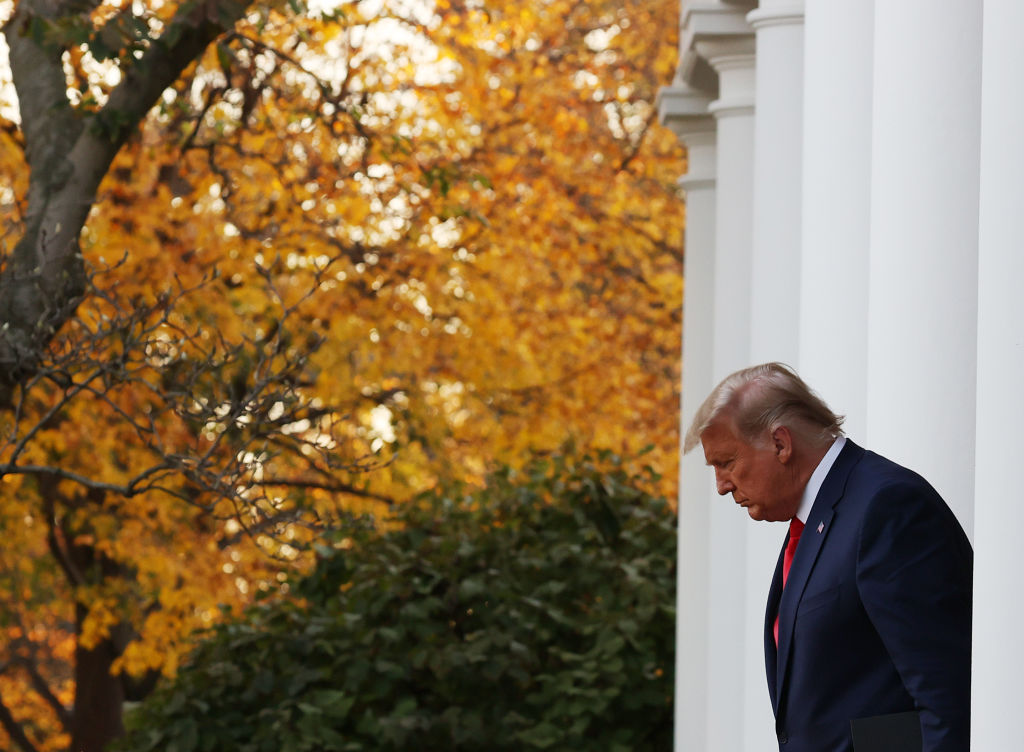Trump determined to designate pro-Iran groups as terrorist
https://arab.news/8jdtf

President Donald Trump wants his years in the White House to be remembered as the most anti-Iranian in the recent history of the US. He does not want to launch a war against Tehran, but he wants to make tough statements that include practical actions to contain Iran. In this regard, there are serious attempts now being pushed forward in Washington to classify both the pro-Iranian Houthis in Yemen and the Badr militia in Iraq as terrorist groups. There are many important implications for such a strategy. It is also critical to mention that there are those who oppose the Trump administration designating these two groups as terror organizations.
This move faces many difficulties. In Yemen, the UN, a number of European countries, such as Germany and Sweden, and some refugee and relief organizations doing humanitarian work are against labeling the Houthis as terrorists. They fear that such a categorization would make humanitarian work more dangerous and lead to a hardening of the Houthis’ position in the negotiations currently being conducted. Ultimately, they fear this could intensify the civil war in Yemen.
In Iraq, the Badr Organization is very powerful and has strong ties with the government. It was able to attack the US Embassy in Baghdad last year. It works very closely with the Islamic Revolutionary Guard Corps, Hezbollah in Lebanon, the Hezbollah Brigades in Iraq, and other Iraqi groups that are supportive of Iran. In spite of all the criticism of Iran-entrenched influence in Iraq, no US administration has sought to stop the work of this militia, since it was perceived by some as being integral to the security of Iraq, which is so unstable and so militant.
The Trump administration wants to hold the Houthis and Badr militia responsible for the destruction of their two nations. It is defending the rights of other groups and individuals that are fighting against these two organizations. The US government knows a great deal about them. They have been subject to much surveillance and monitoring by American agencies. Therefore, the Trump administration can be fair in designating these two groups as terrorists.
It is noticeable that there is a subtle division of labor in the pursuit to classify the Houthis and Badr Organization as terror groups. On Badr, the initiative has been submitted as a congressional bill and is attributable to Republican Rep. Joe Wilson of South Carolina, who is the ranking member of his party on the Middle East, North Africa, and International Terrorism Subcommittee of the House Foreign Affairs Committee. His proposed legislation is called the Badr Organization Designation Act of 2020. It has a big mandate, since it will aim to uncover any American taxpayer money funneled to Badr from the funds given to Baghdad by the US government. It also has to assess Badr’s role in the Popular Mobilization Forces, which guarantee much of Iraq’s internal security in coalition with the Iraqi government. And it has to investigate the role Badr played in the attack on the US Embassy compound in Baghdad last year.
On the other hand, Secretary of State Mike Pompeo has emerged as the most articulate campaigner against the Houthis in Yemen. He has insisted that proclaiming the Houthis a terror group would be one more step in the direction of isolating Iran and making the containment of Tehran a more aggressive Western-American strategy.
The classification of the Houthis and Badr as terror groups would also identify a number of their members as persons subject to sanctions. It would clear the way for policies to freeze their financial assets and punish those who deal with them. It could also begin an international effort to arrest and put on trial their leaders over their involvement in terrorist activities. These huge tasks require that President-elect Joe Biden and his administration consent to such a policy and continue the work to reveal the dangers of these two groups’ schemes. However, it could be doubted that Biden would personally favor a policy of targeting two of Iran’s allies, since he hopes to be more conciliatory with Tehran.
Finally, a number of steps have to be taken if the Trump administration’s wishes are to be fulfilled. The legislation has to garner as much support as possible among both Republicans and Democrats. The move must also be requested by the governments of Yemen and Iraq.
The White House wants to hold the Houthis and Badr militia responsible for the destruction of their two nations.
Maria Maalouf
This way, the American effort to establish the Houthis and Badr militia as terror groups would be complementary to the political stance embraced by these two Arab countries. Moreover, there has to be a declared history of these two lethal groups’ long record of terrorism. And there should be warnings that not labeling them as terrorist organizations would boost their terror plans and tactics.
Trump has, in four years, formulated a new policy toward Iran based on political realism. He is not willing to tolerate groups that kill innocent people in Yemen and Iraq. This tendency to confront and disarm terror groups undoubtedly meets the security needs of many nations in the world. Trump has never been afraid of Iran. The objective of his strategy on terror is to make the world safe for all, not just for “democracy,” as Woodrow Wilson said 100 years ago. Sadly, many world leaders do the opposite. So Trump and his final actions against the Houthis and the Badr Organization can be good examples of why and how states fight terror.
- Maria Maalouf is a Lebanese journalist, broadcaster, publisher, and writer. She holds an MA in Political Sociology from the University of Lyon. Twitter: @bilarakib










































